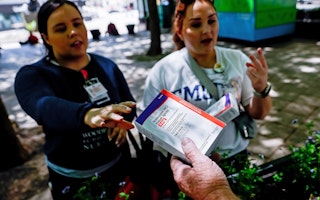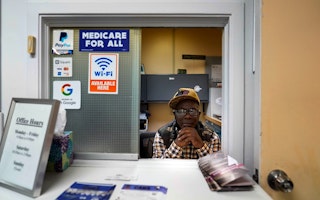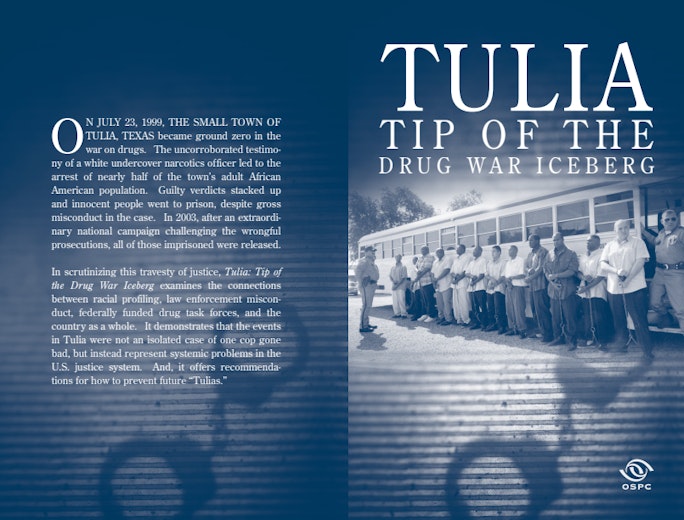On July 23, 1999, the small town of Tulia, Texas, became ground zero in the war on drugs. The uncorroborated testimony of one white undercover narcotics officer led to the arrest of nearly half of the town's adult African American population. Guilty verdicts stacked up and innocent people went to prison, despite gross misconduct in the case. In 2003, after an extraordinary national campaign challenging the wrongful prosecutions, all those imprisoned were released.
Tulia: Tip of the Drug War Iceberg—produced by the Open Society Policy Center, a nonpartisan organization that engages in policy advocacy on U.S. and international issues—examines the connections among racial profiling, law-enforcement misconduct, and federally funded drug task forces. It demonstrates that the events in Tulia were not an isolated case of one cop gone bad, but instead represent systemic problems in the U.S. justice system. The publication also offers recommendations for how to prevent future "Tulias."
Read more
Harm Reduction for All
A Lifesaving Loan: A New Investment to Help Curb the U.S. Overdose Crisis

For over a decade, the small Remedy Alliance nonprofit has revolutionized providing lifesaving healthcare for people who use drugs. Our new investment will help the group increase access to the overdose antidote naloxone.
Drug Policy
Three Decades of Drug Policy Reform Work

Over the past 30 years, Open Society has been the largest philanthropic supporter of efforts to reform drug policy and promote harm reduction around the world. This is a timeline of the Foundations’ pathbreaking work.
WAR IS OVER?
How the United States Fueled a Global Drug War, and Why It Must End

As U.S. domestic drug policy reform gains momentum, it is time the United States makes a concerted effort to de-escalate the failed war on drugs elsewhere.
